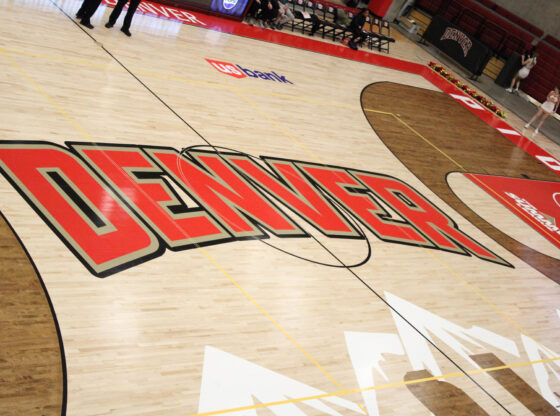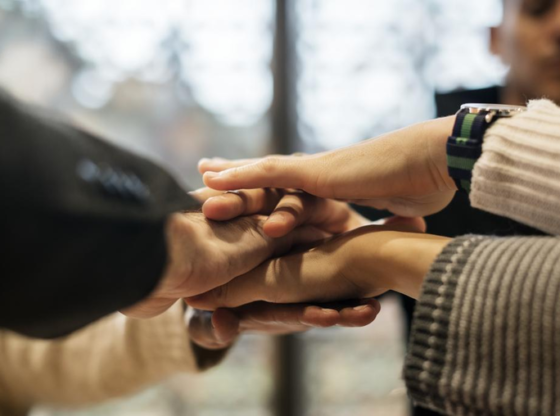This week, as part of our “On The Margins at DU” column that investigates the successes and failures of inclusive excellence at DU, The Clarion spoke with third-year law student Andrea Pache. She serves as secretary of Latino Law Students’ Association (LLSA). LLSA is a graduate group on campus whose mission is to “encourage community support, foster professional development and promote excellence and integrity for current and future Latinos in Law.”
To get involved with LLSA, you can join their email list at llsa@law.du.edu or follow them on Facebook @LLSADU to find out about their events.
Kiana: How inclusive of an environment do you believe DU is for marginalized communities?
Andrea: DU has done what they can, but the issue is bigger than this school. Underrepresentation of individuals who identify as Latinx is pervasive in the legal community and higher education because of racial discrimination and racial bias.
Because of how our society is set up, it is a lot more difficult for POCs to get the same educational opportunities as Caucasian people or have the luxury of focusing on their education.
Kiana: What are the implications of this lack of representation? How does moving through predominately-white spaces affect students of color?
Andrea: When you have people who share the same backgrounds coming together, you lack diversity in thought when collaborating with others and generating new ideas. People with the same life experiences will generally see things similarly. So when people who have important and insightful perspectives are being excluded in legal settings, it’s a problem.
A lot of the time, you have someone representing a person of color who has no idea how to interact with them. They don’t understand their struggles, and they can’t relate to their client. It can be disheartening for people who are involved in the criminal justice or civil legal system to not have a judge, law clerk or anyone working in the profession representing their culture, ethnicity or experience.
We expect collaborative results, but we don’t give everyone the opportunity to bring their skills and knowledge to the table.
Kiana: Who is at fault for this underrepresentation? Is it society as a whole or DU as an institution?
Andrea: Our society has so many barriers that make it difficult for people of color. The criminal justice system is racist. Law enforcement officials can be racist. There isn’t adequate housing, medical care or educational opportunities.
DU recognizes there is a need for diversity, but there isn’t support for diverse students. I hope as we move forward, schools like DU will not only admit more diverse student bodies but give them that needed support. People of color face different challenges and obstacles than Caucasian students do.
Kiana: What would that support for marginalized students look like?
Andrea: Financial support. Mentoring. Promoting student organizations based on diversity like BLSA or LLSA. Hiring faculty members who reflect the diverse student population—not just tenured professors who come from Caucasian backgrounds. Having staff members who can help guide students through their law school experience.
Without support, you can’t expect these students to do as well in academic settings. Emotional support is just as important as academic support.
Kiana: Do you feel like LLSA has gotten support from DU?
Andrea: There’s room for improvement. Diverse organizations get less funding than other student organizations, and there isn’t as much mentorship and guidance as there should be.
In LLSA, I started a mentorship program to help students who identify with the Latinx culture and community. There are so few students like us, so we have to stick together. The more we can make those students feel like a part of the student body, the stronger our education will be.
Kiana: How can students help support marginalized communities?
Andrea: Reach out to diverse students, especially if you know they could use the help. Be there for them if they have issues going on in their personal life. Push DU to continue diversifying its student body. Bring it up to whoever you can. Make the higher-ups see this issue and take it into consideration. If a diverse student organization has an event, attend it. Help get their attendance up and fundraise.
Kiana: What does the current turn-out at LLSA events look like?
Andrea: Most of the time, it’s the few Latinx students who go to the law school. Generally, though, there aren’t as many people interested as we would like.
Kiana: Why do you think students from outside the Latinx community aren’t coming to meetings and events?
Andrea: In law school, time is precious and so hard to come by. They might feel intimidated if they’re not Latinx or don’t know about the culture. They might be afraid to get involved with organizations if they can’t identify with that particular group. But a lot of students just aren’t interested in joining diverse organizations if they aren’t diverse themselves.
Kiana: Why is it important to have groups like LLSA present on campus?
Andrea: It introduces people to new perspectives they might not have encountered before. For Latinx students, it’s a place to feel welcomed and find people who share your experience. Without these spaces, people of color feel isolated and misunderstood because they can’t relate to other students.
Through this column, we hope to shed light on the range of identities and experiences that exist on campus, create a space where their voices can be heard and highlight their contentious relationship with DU. We hope to represent them with as much journalistic integrity as possible, but we are aware that there are stories we will fail to communicate with the same voice. We aspire to do better than student organizations and institutions, including The Clarion, have done in the past at treating these topics with the thought and consideration they deserve.
If there is feedback you would like to give or issues you would like to see covered in this column, please reach out to duclarioneditorialteam@gmail.com.











